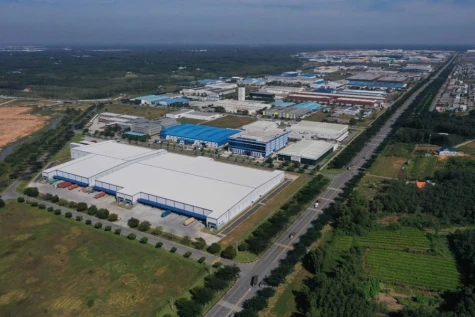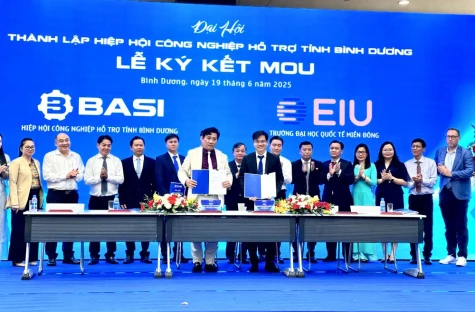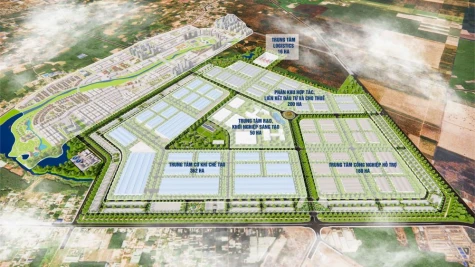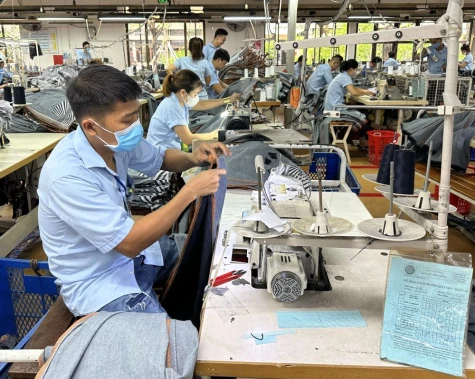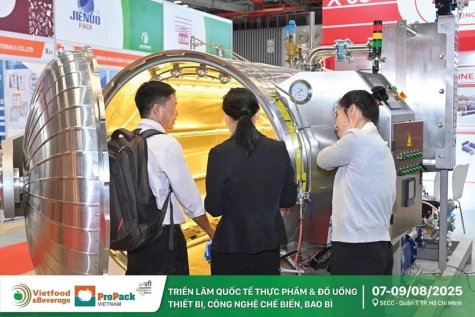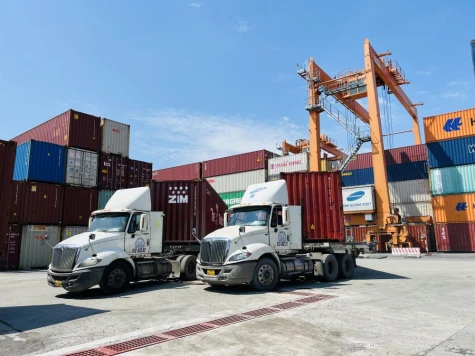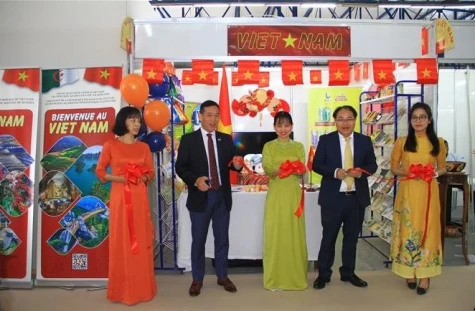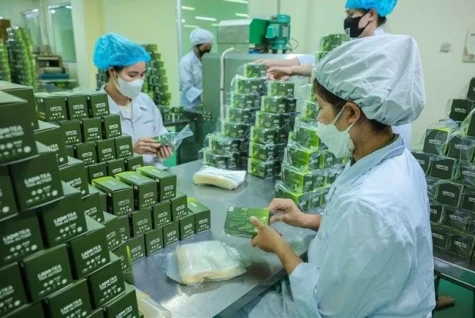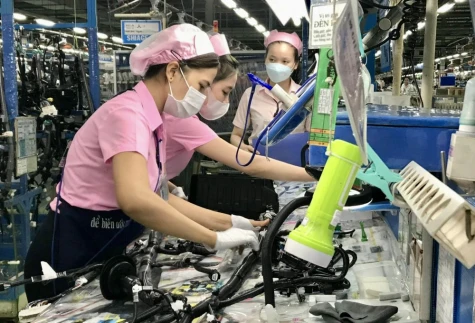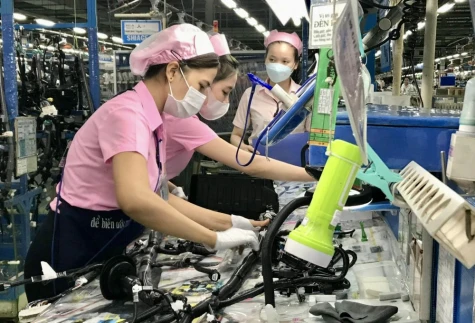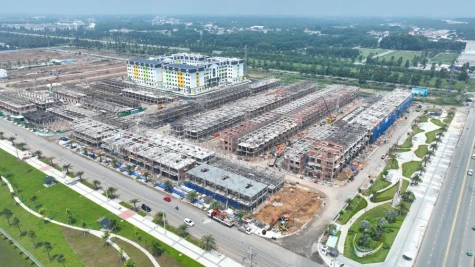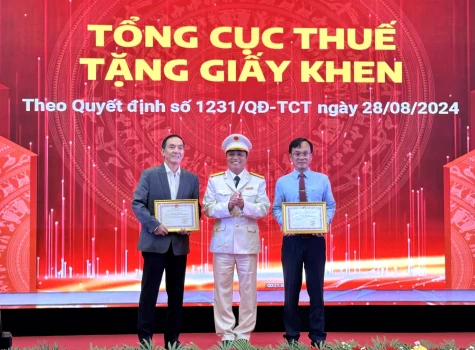The Vietnam-EU Free Trade Agreement (EVFTA), which took effect on August 1, 2020, has marked significant progress in bilateral trade, increasing Vietnam's exports to Europe from 35 billion EUR (nearly 39 billion USD) in 2019 to over 48 billion EUR in 2023.
Luong Hoang Thai, Director of the Multilateral Trade Policy Department at the Ministry of Industry and Trade
The pact has been particularly praised for Vietnam's proactive approach to institutional reforms to create a more transparent and more favourable business environment which, in turn, has help attract increased foreign investment, including from countries in the European Union (EU).
Luong Hoang Thai, Director of the Multilateral Trade Policy Department at the Ministry of Industry and Trade, acknowledged that the EVFTA is the first free trade agreement (FTA) signed between the EU and a developing country in the Asia-Pacific region. This deal has offered an opportunity for both sides to explore new growth areas while also presenting challenges due to the high standards and requirements that go beyond traditional free trade agreements.
He said that one of the important issues of new-generation FTAs is institutional reform. These reforms are necessary to meet high standards set by the agreements and to fully capitalise on the advantages offered. In response, Vietnam's National Assembly and Government have prepared thoroughly by amending and issuing numerous laws and regulations, including those related to insurance, intellectual property, public procurement, commerce, and investment. These efforts aim to create a more favourable business environment for both domestic and foreign investors. Vietnam has also introduced various documents implementing laws on labour, fisheries in order to protect the rights of labourers and the environment as part of its commitment to international economic integration.
Despite the impact of the COVID-19 pandemic and conflicts in Europe such as global supply chain disruption and decreased demand, the EVFTA has brought about positive trade results. Vietnam's exports to the EU rose from 35.7 billion USD in 2019 to 43.6 billion USD in 2023. The agreement represents significant growth in sectors where Vietnam holds competitive advantages such as electronics, footwear, agriculture, and seafood. This growth has positioned Vietnam as a key trading partner of the EU in the ASEAN region.
Vietnam hopes that the EVFTA will bring about more benefits than just increased exports, he said, adding that the agreement is expected to attract foreign investment, establish modern and sustainable supply chains, and stimulate economic growth.
Thai noted that over the past four years, the EVFTA has strengthened Vietnam's position as an attractive destination for EU investors, and contributed to make the EU the sixth-largest investor in the Southeast Asian country, with over 2,450 projects valued at more than 28 billion EUR. Nonetheless, the full realisation of the potential benefits from this investment relationship hinges on the ratification of the Investment Protection Agreement (EVIPA) by all EU member states. While Vietnam and about two-thirds of EU members have ratified the agreement, it is yet to be implemented due to pending approvals from the remaining EU countries.
According to Thai, together with the EVFTA, Vietnam also signed an investment protection agreement with the EU (EVIPA), but this pact is waiting for some remaining EU members to complete ratification before it can take effect.
Vietnam hopes that once the EVIPA is fully ratified, it will generate even greater benefits, he said.
Another less-highlighted benefit of the EVFTA is its role in facilitating access to EU technology and high-quality products. The EU is known for its advanced technology and high-quality products in sectors such as machinery, equipment, and pharmaceuticals.
The EVFTA offers Vietnam a chance to procure these goods at more reasonable costs, benefiting consumers and businesses alike. However, due to the longer tariff reduction schedule in Vietnam compared to the EU, the impact on exports has been slower to materialise.
As the EVFTA progresses into its fifth year, Thai said that there are several challenges to address. EU markets are known for their stringent quality standards, which can be difficult for Vietnamese businesses to meet, especially given Vietnam’s low development level compared to other partners reaching FTAs with with the EU in the region. Additionally, many Vietnamese companies lack established brands and effective strategies for enhancing their market presence in the EU. Some businesses are also not fully aware of the opportunities and advantages offered by the EVFTA.
Moreover, the EU is continuously developing new regulations related to labour and environmental standards to meet increasing consumer demands. These regulations are likely to impact imported goods, including those from Vietnam.
To overcome these challenges, the Vietnamese government has outlined several measures in its approved action plan. These include further improving the business environment through legal and institutional reforms, expanding awareness and understanding of the EVFTA among businesses through seminars, publications, and online resources, and coordinating with the EU to help companies comply with new labour, environmental, and food safety regulations.
In an effort to support Vietnamese businesses, particularly small and medium-sized enterprises, upgrading technology and enhancing competitiveness is crucial for the continued success of the EVFTA./.
VNA




.PNG)




